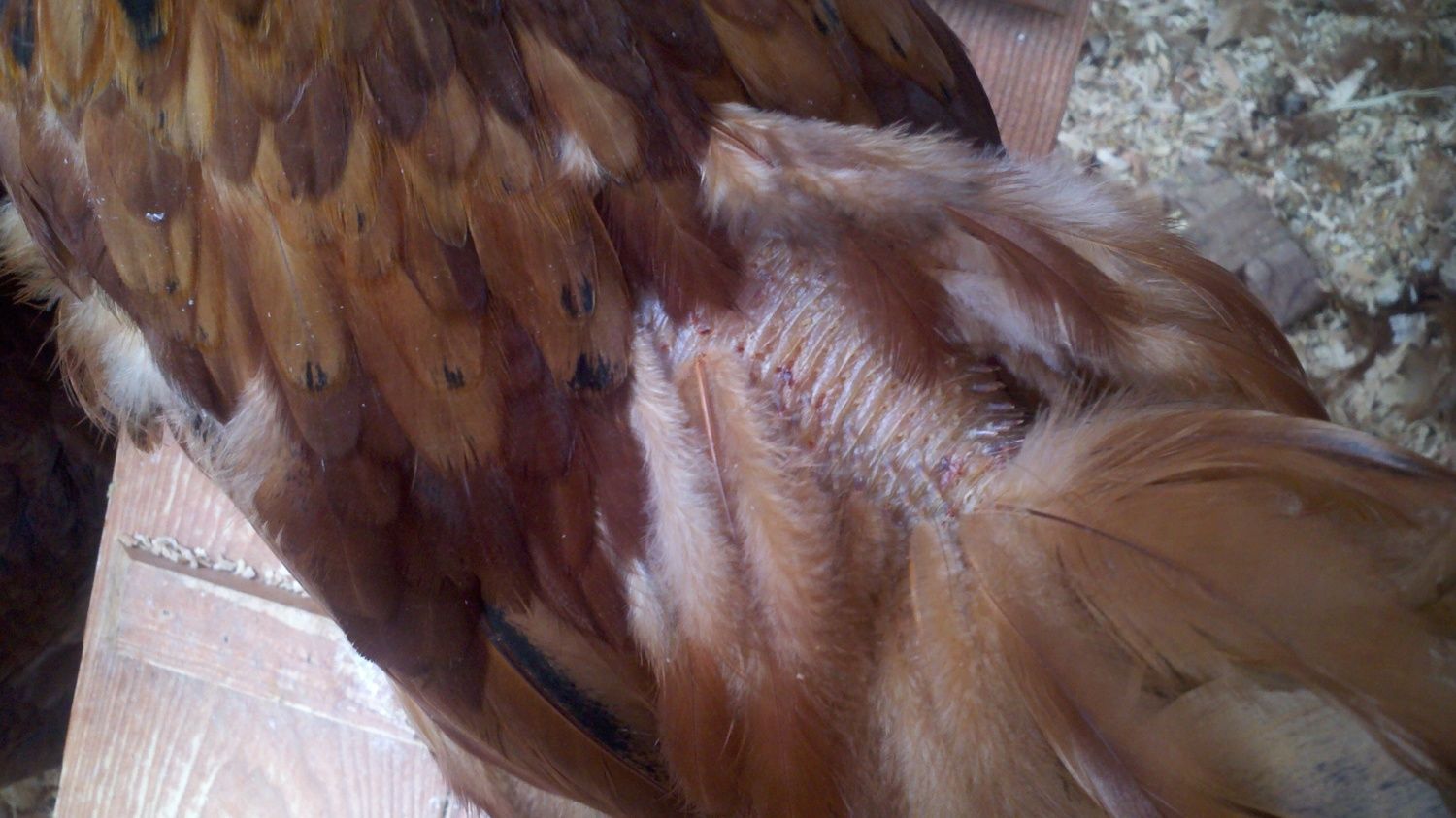
We have three, 22 month old, Rhode Island Reds. Their hen house is 27 sq FT. We have a fenced yard so even though we live in the mountains (6,000 FT), We let them out regularly roam the yard. They never venture past a certain point in the yard and often put themselves back in the coop at night. The problem is they have stopped laying eggs and are loosing ALL their feathers. The last couple of eggs were very light (not the normal brown). We even had a few globs. So we added Oyster Shell to their feed mix of lay mash and scratch. We also give vegges and greens to them from the kitchen. The hen pictured is the most affected but ALL are loosing their feathers. I've also noticed that their top notch is not quite as bright red. I thought they might me moulting and maturing but I think this might be a bit much. Because we live in the Mountains and have allot of shade. We have a light that automatically comes on at dusk to give them 15 hours of sunlight per day. We also have a reptile heating element in the roosting area so the temp never drops below 30 degrees. The water dish also has a heater to keep the water from freezing. My husband felt sorry for them when it snows so he puts up plexi glass panels to help cut down on snow drift in their pen. They seem to be eating and drinking normal but the poo of one of them, not sure who is very runny ANY SUGGESTIONS?




